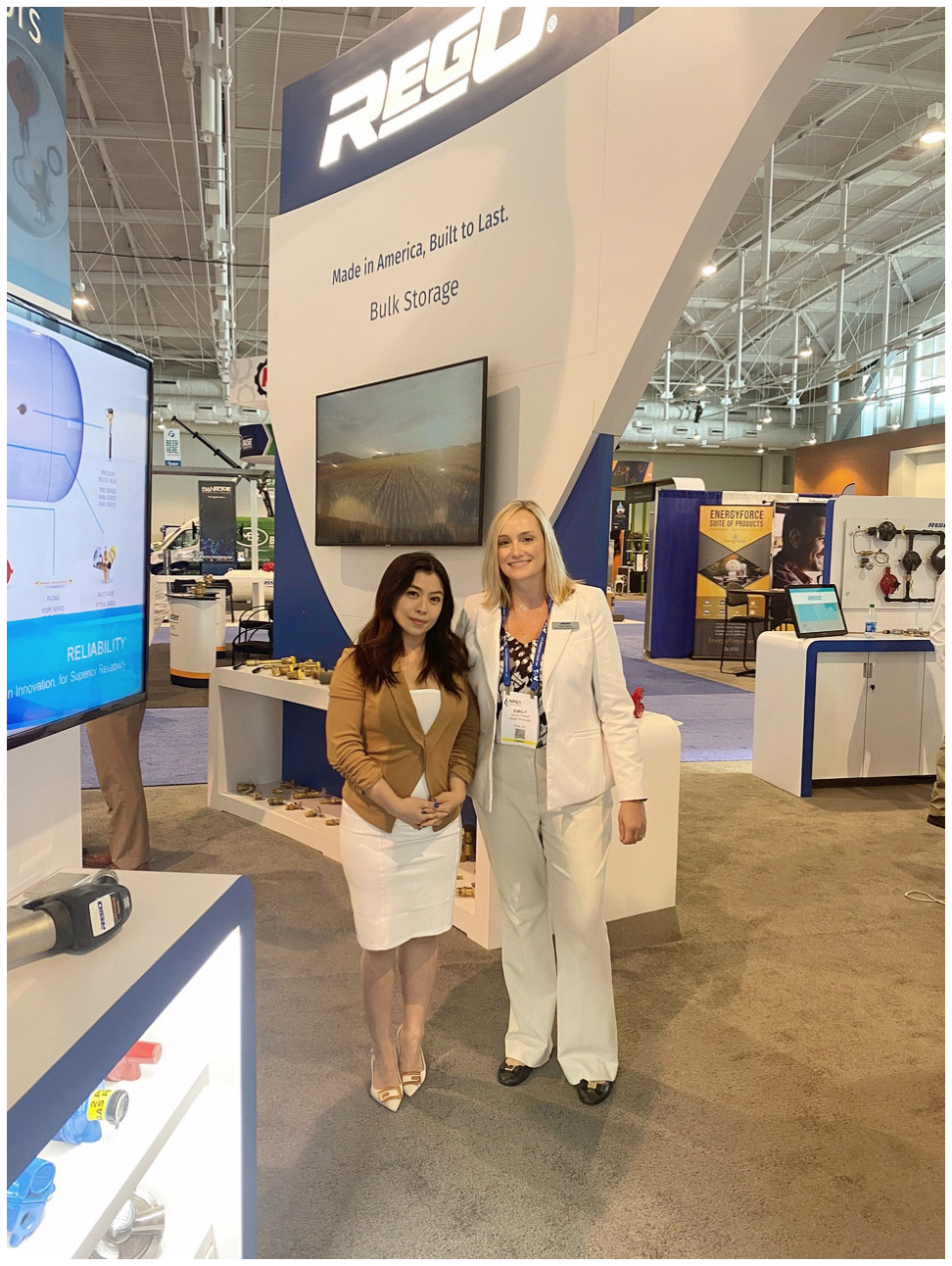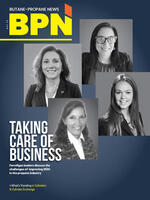
While “diversity,” “equity” and “inclusion” (DE&I) are certainly human resource (HR) buzzwords in 2022, they are not new market terms or ideals. During his time in office, President Ronald Reagan implemented affirmative action goals that helped women and people of color gain access to equal housing and voting rights, as well as greater business opportunities.
But, without clear, practical steps to achieving these goals long term, they were ultimately sidelined, and research by Robert Putnam, laid out in his book “The Upswing” (2020), shows that inequality in the United States has steadily worsened since Reagan’s affirmative actions were abandoned.
In fact, writes Putnam, U.S. black and minority Americans currently have the lowest level of equity they have seen since the 1970s, based on measures of education, income, home ownership and future outlook. But 2020 was a call to action of sorts. With social and economic issues exacerbated and pushed to the forefront by a turbulent U.S. presidential season and a global pandemic disproportionately affecting women and minorities, business leaders are increasingly taking into their own hands what the federal government has yet failed to do — create equity in the marketplace — with Fortune 500 companies like Target in the lead.
Still, it’s slow going. According to The HR Institute’s study “The Future of Diversity, Equity, and Inclusion 2022,” only about 25% of companies who report a focus on DE&I have initiatives in place that could be deemed “mature,” with only 40% offering DE&I training to all employees.
The study also states, “Roughly half (54%) of respondents agree or strongly agree their organization’s corporate culture is more inclusive than it was two years ago. However, slightly fewer indicate their workforce reflects the demographics of today’s marketplace (45%), and about the same say their workforces are more diverse than two years ago (48%).
Yet, more than three-quarters of respondents say it is important to “work at an organization that prioritizes diversity and inclusion.” While the DE&I onus ultimately lies on policy, many underrepresented employees are finding ways toward true inclusion through their own means — and one such example is the women of the propane industry.
Show ’Em What You’ve Got
Prospective male employees are generally evaluated based on their education or relevant experience, but often women must go beyond their credentials, proving themselves capable before garnering a company’s true trust in their abilities, making it more difficult for women to land leadership roles.
According to The HR Institute, “About half of HR professionals say women represent no more than 40% of people managers, and a fifth say women are no more than 20% of people managers.”
The statistics for women of color are even more staggering. A study by Perceptyx, “Elevating Equity: The Real Story of Diversity and Inclusion,” notes that only three of the companies currently on Forbes’ Fortune 500 list are led by a black CEO and there have only ever been two female black CEOs in this category.

The glass ceiling can be thick in male-dominated industries like propane, but some women making strides in the industry believe the first step is showing up and showing out anyway.
Emily Harrell, director of product management at RegO Products (manufacturer of valves and flow controls for the production, storage and transport of industrial gases, cryogenic fluids and alternative fuels), says, “I think companies need to have a good balance of both internal and broader, industrywide DE&I promotion and involvement to ensure that women are not left behind in either the company or the industry.”
For Harrell, DE&I initiatives are just the beginning — a vessel of opportunity for women in the industry — but taking agency over those new avenues and owning the role is an inside job.
“The industry is giving us an opportunity [now],” she adds. “It’s up to each individual person to prove themselves. I do feel as a woman I’ve had to go a little further and harder to prove myself quicker, just because I don’t want to be viewed differently. But once I prove myself, for me there is no issue with gender or background.”
“No matter your gender, race, ethnicity or even education,” Harrell continues, “once you prove that you are a valued contributor, then you are — or at least should be — recognized for that.”
Her colleague, Peini Spinazzola, senior marketing manager for RegO, feels similarly. Spinazzola states, “I think, in reality, there’s no industry or environment that can ensure DE&I. I think it’s on us — how we prove we have the ability and the skill to perform that job. Yes, we are asking for equality, but at the same time, we need to make sure we are stepped up to everyone else, not just because we are women, so we need to be treated differently.”
For Spinazzola, the proof of belonging is in action. Initiatives may open the door, but real elbow grease used to squeak out better results is how women take their seat at the table. “With a different background and life experiences, you definitely bring different tools when handling situations, providing more productive and proactive solutions.”
Why Tech Could Be the Great Equalizer
As the propane industry has evolved along with technology in general, increasingly more positions open that do not involve work in dirt-filled environments or the heavy lifting required for fuel delivery and service. While some women are certainly capable of filling such physically demanding positions, it is less common for them to desire or seek out such work, and tech positions often help fill in the hiring gap.
“Thirty, 40 years ago, there weren’t many tools they could use to communicate and educate a new customer,” says Spinazzola. “And when it comes to the product, it’s all about hands on, which requires a rough environment. So, I think, naturally, propane is not really a typical [industry where] women would be involved. But in today’s world, that’s not the case. We don’t have to be in a dirt-pile to educate customers on how to use a product. I think this empowers women getting into a different industry with a different skill set. I don’t have to [not] be involved if I cannot lift 50 pounds.”
With the increase of technologies that allow for the virtual demonstration of products, as well as continued automation of machinery and a growing need for engineers, the propane industry is opening to less able-bodied persons and those who long for a work environment not directly in contact with the gases and fluids that are the market’s bread and butter. On this topic, Harrell says, “In general, times have changed, even since I was in college. I’m a chemical engineer, and I was one of the few women sitting at the table (literally) in class. I have seen that dynamic change. Over the years, more and more women have been going into disciplines related to science, technology, engineering and math.”
Similarly, the increased push for alternative fuel sources and methods by which to harness them usher in a new generation of minds — a generation bent on workplace and broader-spectrum ideals of DE&I — and pooling together these new minds is crucial for the evolution of such ideals and their ultimate fruition.
Mentorship Matters
Mentorship programs are an important tool for furthering DE&I at any company, and the propane industry is wielding it. The National Propane Gas Association’s (NPGA) Women in Propane Council offers a knowledge exchange mentorship program to all NPGA members. Mentees fill out profiles and are paired with qualified mentors via matching software. Partners meet for two hours a month over a six-to-12-month period, during which the goal is to share relevant industry knowledge and experiences.
It is in programs like these that not only industry-specific information can be exchanged, but struggles, advice, questions and plans for new initiatives can be hashed out as well.
According to Qooper, a mentorship software producer, “Mentorship programs are a great way to align employees toward common goals and help them recognize their differences and overcome them as they work towards a project.”
And mentorship programs that target underrepresented groups, like Women in Propane’s knowledge exchange, give mentees “a chance at identifying their career goals within the organization, develop their qualifications and competencies and to get ready to take the next step in their career on their way to diversifying senior leaders in the organization.” Harrell and Spinazzola agree.
“I think [the mentorship program] is great to help ensure that people are learning from each other’s experiences and helping [one another]. A big part of the program is not just women in the industry, but younger people. So [it’s about] helping coach them and making sure that they’re ready to take over,” says Harrell.
Spinazzola adds, “The program provides mentorship to young professionals, or those new to the industry, which I think is definitely a good start. In the future, we should have different industry people to join this mentorship. It’s not just about [those working directly with] propane. It could be people in IT, marketing, people management, project management, etc. I think, especially for the young generation, it’s quite important.”
Ideally, as time goes on and mentees turn into mentors, more women and people of color will take seats at the proverbial and literal leadership tables. Then DE&I policies can be created by those who truly know what matters, what works and what doesn’t, and what is required to ensure the planning and implementation of organizational practices that bring about more diversity and maximize its advantages.
What This Means for Business
But, besides the fulfillment of fostering an inclusive environment and, in turn, happy employees, the real business advantage of mature DE&I programs nudging industries to get moving is profit.
The HR Institute’s findings make a strong case for increasing practical, companywide DE&I initiatives — 57% of respondents agree that initiatives gave enhanced organizational performance; 52% report improved compliance; 64% report enhanced mission visions and values — all metrics that pay dividends when increased.
Similarly, Perceptyx reports these businesses are 1.6 times more likely to exceed financial targets, 1.6 times more likely to satisfy and retain customers, 3.1 times more likely to effectively adapt to change, and 2.9 times more likely to innovate successfully.
Of course, the truth behind these stats is not lost on those who are the driving force behind the research. “Diversity matters. There’s an increasing amount of research and information focused on the value of diversity, and more leaders are catching on to it. When women become leaders, they provide a different set of skills and experience that drive effective solutions,” says Harrell.
The path to a truly diverse and equitable industry isn’t straight. It will take trial and error, constant data mining, additional employee training (from the top down), as well as regular check ins with employees to gauge the effectiveness of current programs, incentives and policies.
It will demand systemic cultural shifts and many, many years to reach mastery. And even then, the work can never stop. But finding ways toward this goal is a challenge many women in the propane industry, including Spinazzola, are up for: “We are in a constantly changing marketplace, and the best way to gain a competitive advantage is through diversifying the workforce in companies and organizations.
“It can start with helping women obtain leadership positions, encouraging change in the boardroom, and inviting female leaders to join the conversation,” said Spinazzola.


